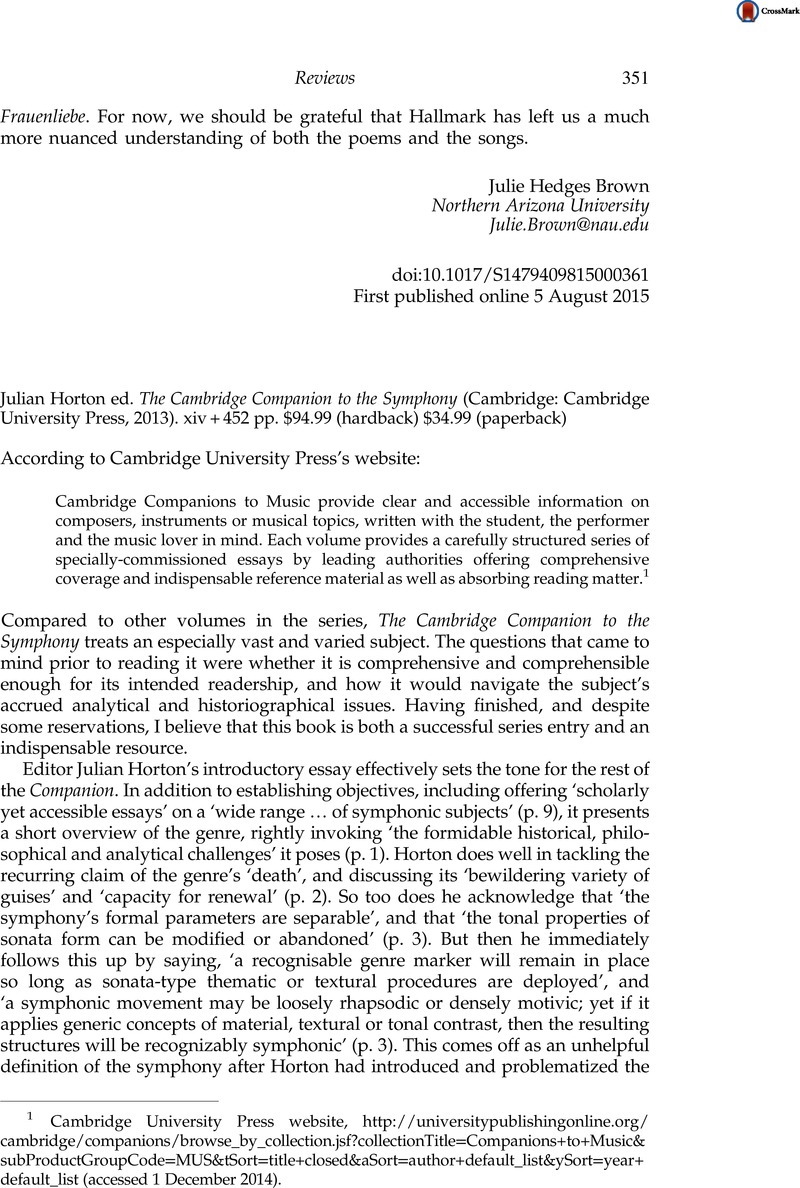No CrossRef data available.
Published online by Cambridge University Press: 01 July 2015

1 Cambridge University Press website, http://universitypublishingonline.org/cambridge/companions/browse_by_collection.jsf?collectionTitle=Companions+to+Music&subProductGroupCode=MUS&tSort=title+closed&aSort=author+default_list&ySort=year+default_list (accessed 1 December 2014).
2 I encourage interested readers to consult Morrow’s equally fine work on this topic in Morrow and Churgin, eds, The Symphonic Repertoire, vol. 1, The Eighteenth-Century Symphony (Bloomington: Indiana University Press, 2012Google Scholar).
3 See Dahlhaus, Carl, Nineteenth-Century Music, trans. J. Bradford Robinson (Berkeley: University of California Press, 1989Google Scholar), pp. 152–60, 265–76.
4 In full disclosure, I was more sympathetic to this perspective when I reviewed Grimley’s monograph Carl Nielsen and the Idea of Modernism (Woodbridge: Boydell, 2010)Google Scholar; see Notes 68/3 (2012): 601–3. While I still find this book to be extremely worthwhile, I would assess it differently now.
5 Grimley’s exact words are ‘Commentators widely agree that the work is the most “difficult” and outwardly modernist of Sibelius’s symphonies’. In one other example, Byron Adams adopts a similar phrase of description (‘most overtly modernist’). See Adams, , ‘“Thor’s Hammer”: Sibelius and British Music Critics, 1905–1957’ in Jean Sibelius and His World, ed. Daniel Grimley (Princeton: Princeton University Press, 2011), p. 127Google Scholar. Ironically, David Fanning reminds us in this very Companion that the composer referred to the work as ‘anti-modern’, writing: ‘Anti-modern it may be, in the composer’s words, but only in the sense of turning its back on luxuriance, self-indulgence and exhibitionism’ (p. 107).